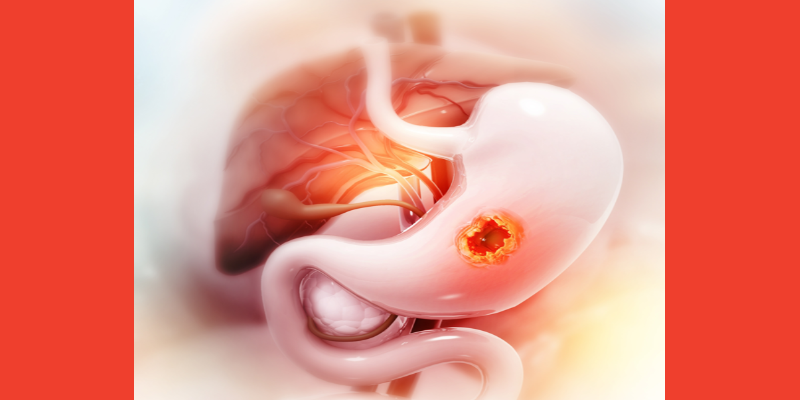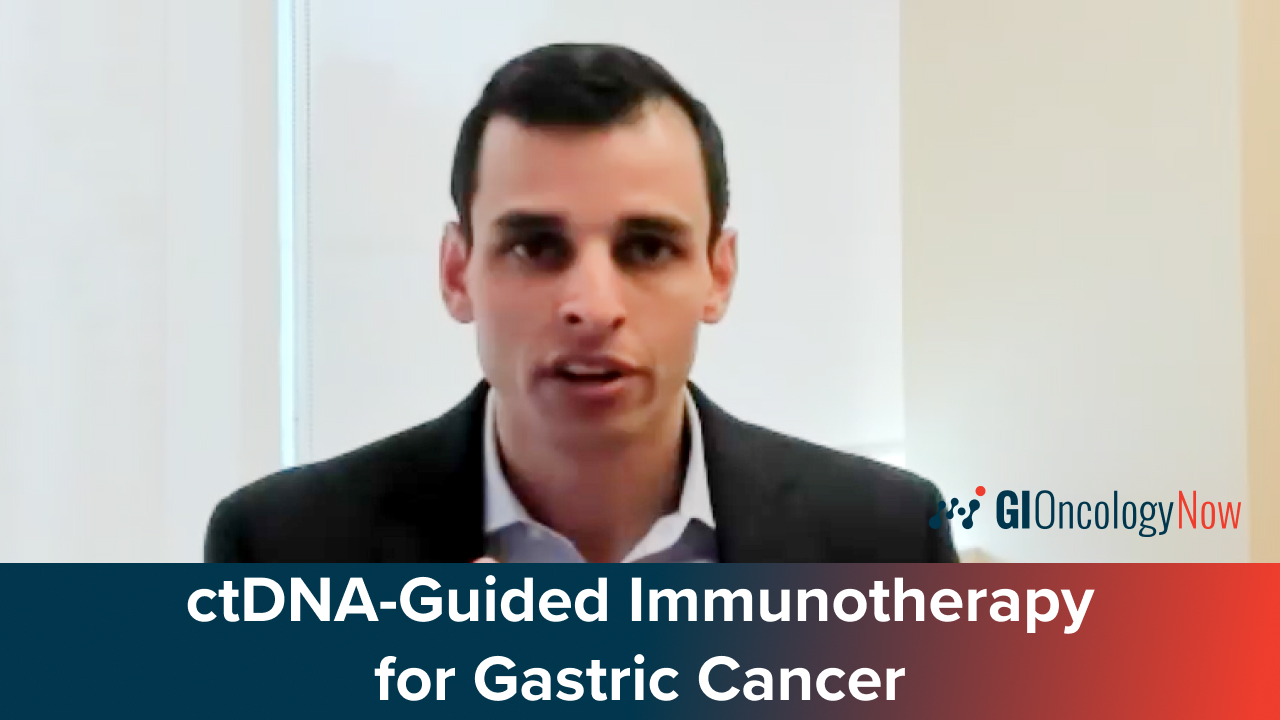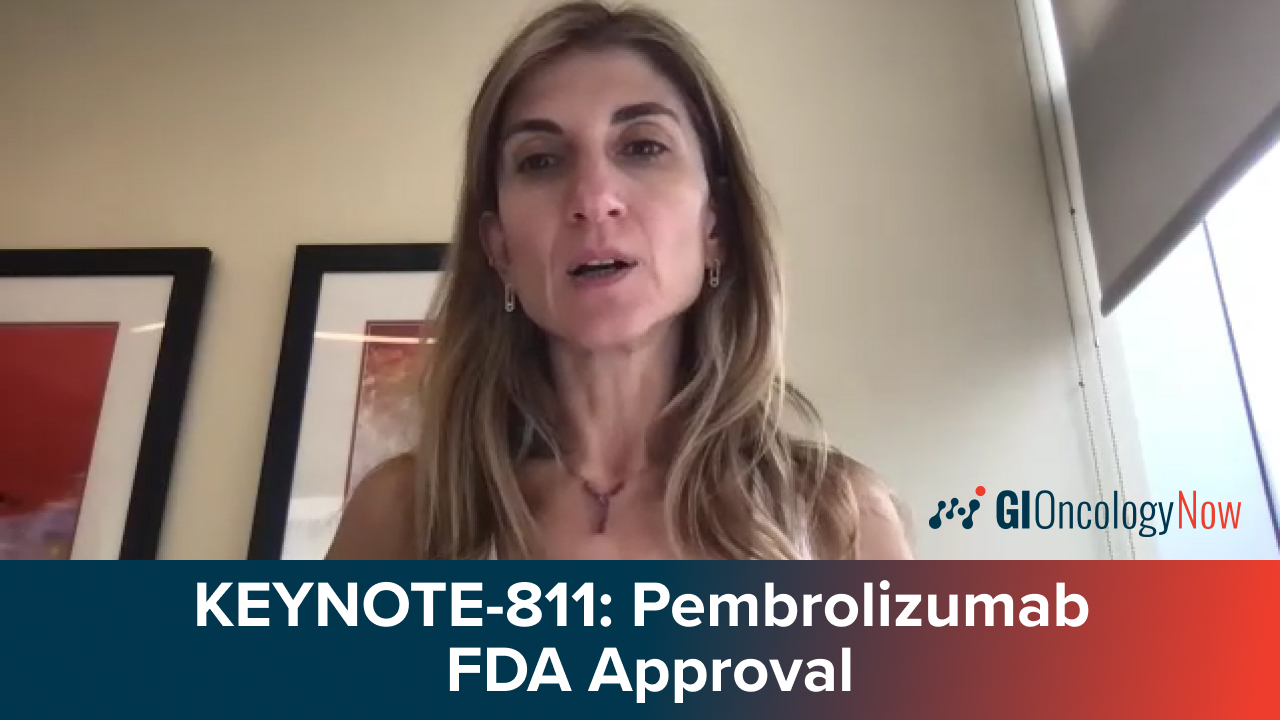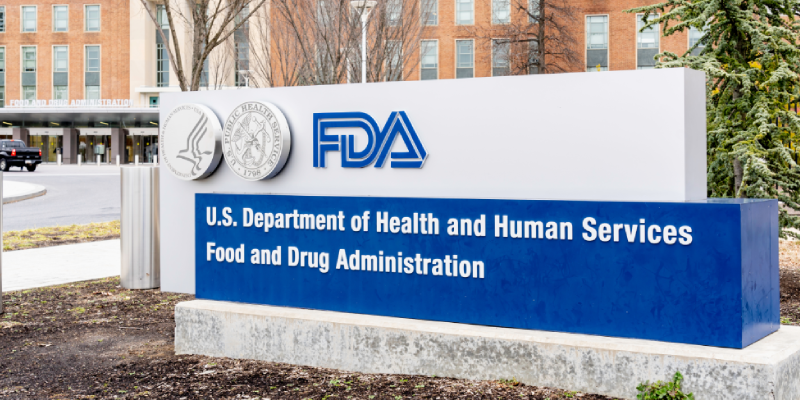
Researchers recently reported the results of the randomized, controlled phase 3 KEYNOTE-062 trial, which compared pembrolizumab, with or without chemotherapy, versus chemotherapy alone in patients with untreated, advanced gastric/gastroesophageal junction (G/GEJ) cancer. The researchers concluded that pembrolizumab, alone or in combination, was not inferior to chemotherapy.
The study included patients with untreated, locally advanced/unresectable or metastatic G/GEJ cancer with programmed cell death ligand 1 (PD-L1) combined positive score (CPS) ≥1. Between Sept. 18, 2015, and May 26, 2017, 763 patients were recruited from 200 centers spanning 29 countries. They were randomized to one of three groups: pembrolizumab 200 mg (n=256), pembrolizumab plus chemotherapy (cisplatin 80 mg/m2/d on day 1 plus fluorouracil 800 mg/m2/d on days 1 to 5 or capecitabine 1000 mg/m2 twice daily; n=257), or chemotherapy plus placebo (n=250). The main outcomes were overall survival (OS) and progression-free survival (PFS).
The median (range) age of the entire cohort was 62 (20–87) years, and most patients (n=554; 72.6%) were male. Patients were followed for a median (range) 29.4 (22.0–41.3) months. At final follow-up, median OS did not largely differ between patients with CPS ≥1 who received pembrolizumab compared to chemotherapy (10.6 months vs. 11.1 months; hazard ratio [HR]=0.91; 99.2% confidence interval (CI), 0.69 to 1.18). In patients with CPS ≥10, pembrolizumab was associated with greater median OS compared to chemotherapy patients (17.4 months vs. 10.8 months; HR=0.69; 95% CI, 0.49 to 0.97), although the study authors noted that “this difference was not statistically tested.”
Median OS for patients with CPS ≥1 receiving pembrolizumab plus chemotherapy was not significantly different from that of chemotherapy alone patients (12.5 months vs. 11.1 months; HR=0.85; 95% CI, 0.70 to 1.03); similar outcomes were observed for patients with CPS ≥10 (12.3 months vs. 10.8 months; HR=0.85; 95% CI, 0.62 to 1.17). Median PFS for patients with CPS ≥1 receiving pembrolizumab plus chemotherapy was not significantly different from that of chemotherapy alone patients (6.9 months vs. 6.4 months; HR=0.84; 95% CI, 0.70 to 1.02). Grade 3 to 5 treatment-related adverse event rates were highest in the pembrolizumab plus chemotherapy group (73%), followed by the chemotherapy alone (69%) and pembrolizumab groups (17%).
The study was published in JAMA Oncology.
“This phase 3 randomized clinical trial found that among patients with untreated, advanced G/GEJ cancer, pembrolizumab was noninferior to chemotherapy, with fewer adverse events observed. Pembrolizumab or pembrolizumab plus chemotherapy was not superior to chemotherapy for the OS and PFS end points tested,” the researchers summarized.







 © 2025 Mashup Media, LLC, a Formedics Property. All Rights Reserved.
© 2025 Mashup Media, LLC, a Formedics Property. All Rights Reserved.